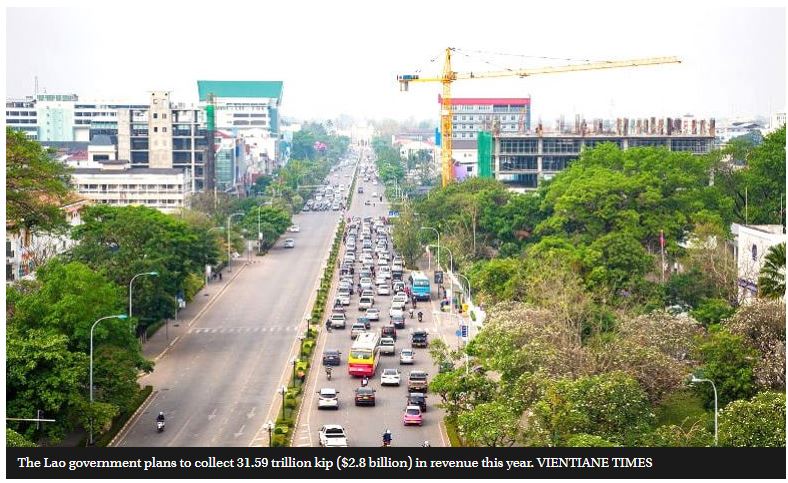Lao gov’t pledges to reduce budget deficit this year
The Lao government has announced that it will attempt to lower its fiscal deficit to just 3.098 trillion kip ($275 million) this year, which is equal to 1.61 per cent of the gross domestic product (GDP).
The pledge comes as the government continues to ease budgetary tensions and minimise its public debt burden at a time when it is struggling to source more funds to address the shortfall.
To achieve its goal, the government has pledged to bolster the amount of revenue collected while also plugging loopholes that could result in the loss of money owed to its coffers.
Revenue amassed from sources within Laos must be sufficient to cover domestic expenditure and yield a surplus to repay debts owed both domestically and to other countries, according to an instruction issued by the Ministry of Finance recently.
In mid-December, the ministry announced that revenue accumulated in the first 11 months of 2021 amounted to just 24.099 trillion kip, equivalent to 87 per cent of the target figure. This means the fiscal shortfall for 2021 is projected to rise from the previous target figure of 2.17 per cent to 4.33 per cent of GDP.
In 2022, the government plans to collect 31.59 trillion kip in revenue, representing 16.44 per cent of GDP, with expenditure set at 34.96 trillion kip, accounting for 18.05 per cent of GDP.
To boost national income, the government has vowed to modernise the tax collection system and take a close look at the taxes paid on imported fuel, construction equipment, electrical appliances and other imported goods, as well as taxes and fees sourced from mining and hydropower operations.
In addition, the ministry will revise land-related fees and the amount of income tax paid on the transfer of land ownership rights based on projected land values in different areas of the country.
In addition, a taskforce will be appointed to address the issue of vehicles for which the correct amount of tax has not been paid.
The ministry has pledged to work with associated sectors to reform loss-making state-owned enterprises by seeking strategic business partners and streamlining their management methods.
With regard to expenditure, the government will focus on priority projects and take frugality and efficiency into account when it comes to allocating financial resources.
Some state organisations will be encouraged to trial financial self-sufficiency in order to reduce the fiscal burden on the government.
The government will also cut spending on certain activities, such as working trips to the provinces and other countries, meetings, seminars, and social events.
The fiscal deficit was fairly high even four or five years ago. For instance, in 2017 the deficit was recorded at 6.52 per cent of GDP, later declining to 4.7 per cent of GDP.
The government has vowed to further reduce the budget deficit as part of ongoing efforts to address all-round economic and financial difficulties and lower the country’s debt burden in the near future.
VIENTIANE TIMES/ASIA NEWS NETWORK


 English
English




